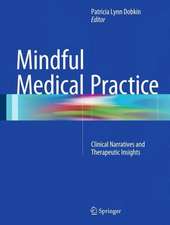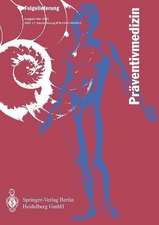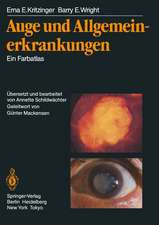The Equal Curriculum: The Student and Educator Guide to LGBTQ Health
Editat de James R. Lehman, Kristine Diaz, Henry Ng, Elizabeth M. Petty, Meena Thatikunta, Kristen Eckstranden Limba Engleză Paperback – 14 noi 2019
This first-of-its-kind textbook marks a revolutionary effort to reform medical education nationally by providing a comprehensive, high-quality resource to serve as a foundation for lesbian, gay, bisexual, transgender, and queer (LGBTQ) health education across multiple disciplines. Addressing the decades-long unequal weight of medical education generally offered about the care of LGBTQ people, The Equal Curriculum was created to advance clinicians' competencies in optimizing the health of LGBTQ people. This textbook is designed to be integrated into health sciences curricula and offers pointed strategies to evaluate the integration of LGBTQ health topics. Starting with a brief overview, chapters 1 through 4 cover general content that is highly relevant to all health professionals working with LGBTQ people. Chapters 5 through 12 focus on specific patient populations and clinical specialties, and chapters 13 and 14 cover special topics. Key points in each chapter are highlighted to aid in the comprehension, and case vignettes are provided throughout the textbook, allowing learners to apply the content to clinical scenarios in order to evaluate how the application of relevant knowledge may impact health outcomes. Questions similar to National Board of Medical Examiners (NBME) style are provided in most chapters to assist in the application of content. As major addition to the clinical literature, The Equal Curriculum: Student and Educator Guide to LGBTQ Health should be of great interest to health sciences instructors, medical students in their preclinical and clinical phases, and trainees from other disciplines, such as physician assistants, nurses, social workers, and public health professionals.
Preț: 607.31 lei
Preț vechi: 639.27 lei
-5% Nou
Puncte Express: 911
Preț estimativ în valută:
116.25€ • 126.31$ • 97.71£
116.25€ • 126.31$ • 97.71£
Carte tipărită la comandă
Livrare economică 17-23 aprilie
Preluare comenzi: 021 569.72.76
Specificații
ISBN-13: 9783030240240
ISBN-10: 303024024X
Pagini: 335
Ilustrații: XXIII, 317 p. 28 illus. in color.
Dimensiuni: 178 x 254 mm
Greutate: 0.68 kg
Ediția:1st ed. 2020
Editura: Springer International Publishing
Colecția Springer
Locul publicării:Cham, Switzerland
ISBN-10: 303024024X
Pagini: 335
Ilustrații: XXIII, 317 p. 28 illus. in color.
Dimensiuni: 178 x 254 mm
Greutate: 0.68 kg
Ediția:1st ed. 2020
Editura: Springer International Publishing
Colecția Springer
Locul publicării:Cham, Switzerland
Cuprins
Section I: Foundational Sociological, Health Disparities, Health Research, and Medicolegal Concepts for the LGBT Community.- Chapter 1: Language and History of LGBT People.- Chapter 2: LGBT Health Disparities.- Section II: Interdisciplinary Approach to Care for LGBT People.- Chapter 3: The LGBT-Friendly Care Encounter.- Chapter 4: Interdisciplinary Approach to Care.- Chapter 5: Screening and Prevention.- Section III: Clinical Care of the LGBT Community.- Chapter 6: Child and Adolescent Medicine.- Chapter 7: Adult Primary Care.- Chapter 8: Sexual Health.- Chapter 9: Transgender Health.- Chapter 10: Emergency Medicine.- Chapter 11: HIV/AIDS.- Chapter 12: Psychiatry and Neurology.- Section IV: Emerging Topics in LGBT Health.- Chapter 13: Data Collection and Research.- Chapter 14: Topics in Global LGBT Health.- Appendices.
Recenzii
Notă biografică
James R Lehman, MD, MPH
University of Wisconsin School of Medicine and Public Health
Madison WI
Kristine M. Diaz, PsyD
Defense Health Agency, National Capital Region Medical Directorate
Bethesda MD
Henry Ng, MD, MPH
Baldwin Wallace University
Berea, OH
Elizabeth M Petty, MD
University of Wisconsin School of Medicine and Public Health
Madison, WI
Meena Thatikunta, MD
University of Louisville
Louisville, KY
Kristen L Eckstrand, MD, PhD
University of Pittsburgh,
Pittsburgh, PA
Textul de pe ultima copertă
This first-of-its-kind textbook marks a revolutionary effort to reform medical education nationally by providing a comprehensive, high-quality resource to serve as a foundation for lesbian, gay, bisexual, transgender, and queer (LGBTQ) health education across multiple disciplines. Addressing the decades-long unequal weight of medical education generally offered about the care of LGBTQ people, The Equal Curriculum was created to advance clinicians' competencies in optimizing the health of LGBTQ people. This textbook is designed to be integrated into health sciences curricula and offers pointed strategies to evaluate the integration of LGBTQ health topics. Starting with a brief overview, chapters 1 through 4 cover general content that is highly relevant to all health professionals working with LGBTQ people. Chapters 5 through 12 focus on specific patient populations and clinical specialties, and chapters 13 and 14 cover special topics. Key points in each chapterare highlighted to aid in the comprehension, and case vignettes are provided throughout the textbook, allowing learners to apply the content to clinical scenarios in order to evaluate how the application of relevant knowledge may impact health outcomes. Questions similar to National Board of Medical Examiners (NBME) style are provided in most chapters to assist in the application of content. As major addition to the clinical literature, The Equal Curriculum: Student and Educator Guide to LGBTQ Health should be of great interest to health sciences instructors, medical students in their preclinical and clinical phases, and trainees from other disciplines, such as physician assistants, nurses, social workers, and public health professionals.
Caracteristici
This first-of-its-kind textbook marks a revolutionary effort to reform medical education nationally by providing a comprehensive, high-quality resource to serve as a foundation for lesbian, gay, bisexual, transgender, and queer (LGBTQ) health education across multiple disciplines. Addressing the decades-long unequal weight of medical education generally offered about the care of LGBTQ people, The Equal Curriculum was created to advance clinicians' competencies in optimizing the health of LGBTQ people. This textbook is designed to be integrated into health sciences curricula and offers pointed strategies to evaluate the integration of LGBTQ health topics. Starting with a brief overview, chapters 1 through 4 cover general content that is highly relevant to all health professionals working with LGBTQ people. Chapters 5 through 12 focus on specific patient populations and clinical specialties, and chapters 13 and 14 cover special topics. Key points in each chapter are highlighted to aid in the comprehension, and case vignettes are provided throughout the textbook, allowing learners to apply the content to clinical scenarios in order to evaluate how the application of relevant knowledge may impact health outcomes. Questions similar to National Board of Medical Examiners (NBME) style are provided in most chapters to assist in the application of content. As major addition to the clinical literature, The Equal Curriculum: Student and Educator Guide to LGBTQ Health should be of great interest to health sciences instructors, medical students in their preclinical and clinical phases, and trainees from other disciplines, such as physician assistants, nurses, social workers, and public health professionals.














